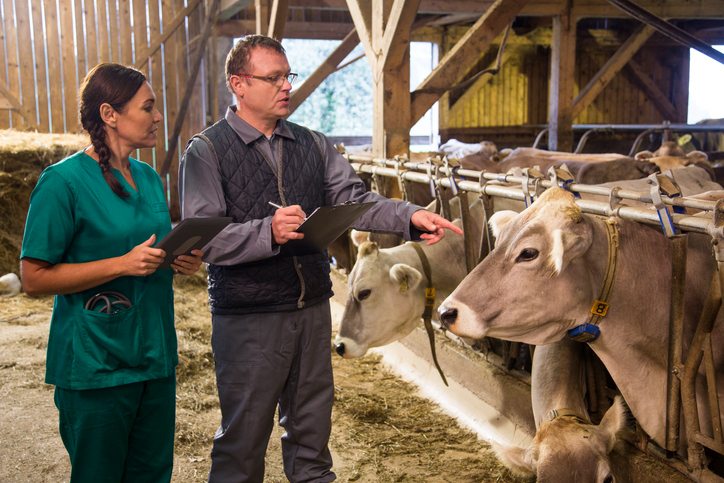
Should you use medicated or non-medicated feed additives for your livestock operation?
That’s the question many operators have been struggling with as they determine the best way to protect and improve the health of their livestock.
There has been a steady increase in antimicrobial resistance among livestock, which has led to growing concern within the agriculture community. The growth of antimicrobial resistance is so alarming that it has been labeled by the World Health Organization (WHO) as one of the biggest threats to global health.
In this post we’ll cover these three advantages that non-medicated feed additives have over medicated ones:
- Improving feed efficiency
- Supporting healthy growth rates
- Strengthening weak immune systems
The Risks of Using Antibiotics in Animal Feed
One of the chief concerns associated with using medicated additives is the transference of antibiotic-resistant bacteria from livestock to humans. In 1983, eighteen people in four different Midwestern states became infected with antibiotic-resistant Salmonella food poisoning after consuming beef from cows that were fed antibiotics.
Since first appearing in 1948, the risk of antimicrobial resistance has increased substantially. This has prompted the United National General Assembly to identify the use of antibiotics in livestock feed as a primary cause of antimicrobial resistance in 2016.
Data suggests that resistance rises as the use of antimicrobials increases.The National Academy of Sciences of the United States of America projects that antimicrobial consumption among animals will increase 67% by 2030. That means more problems with resistance can be expected.
Specialty, Non-Medicated Feed Additives to the Rescue
Non-medicated specialty additives have emerged as a viable and reliable way to avoid the over-use of medicated feeds. They can help improve the shelf life of feed and enhance nutritional properties, making it easier for livestock to absorb minerals, vitamins and other elements that support normal body functions. For farmers and nutritionists wanting to avoid the use of medicated feeds, these supplements could be just the solution they’re looking for.
Check out the three greatest advantages of using non-medicated feed additives:
1. Increased Feed Efficiency
While some medicated additives can help improve efficiency, feed supplements do it naturally by providing a healthy dose of amino acids, vitamins, and minerals. This creates a balanced diet that supports improved feed efficiency.
2. Support Healthy Growth Rates
Medicated feed supplements have shown the ability to improve growth rates thanks to their ability to prevent infectious diseases. Unfortunately, this has aided the introduction of antimicrobial resistant bacteria as well.
Non-medicated additives, on the other hand, can enhance the nutritional intake of feed, allowing livestock to achieve optimal growth rates and healthy weight gain. Nutrient-rich diets are extremely beneficial in supporting growth, especially for young, developing livestock.
3. Strengthen Weak Immune Systems
Animals with sufficient reserves of nutrients are best equipped to cope with immune system health problems. Medicated additives can help in fighting immune disease and infections, but non-medicated additives help to build the body’s reserves of nutrients. This allows animals to naturally fight off disease, sickness, and infection.
Non-Medicated Additives Are Better
Not only are non-medicated additives a great way to augment livestock value, health, and production, they also avoid the problem of building antimicrobial resistance. Everything from organic trace minerals, digestive enzymes, mold inhibitors, and feed binders can support optimal growth rates, normal body function, and prime health.
Check out our free guide on The Top 9 Livestock Feed Additives and see how they can help solve your animal feed challenges while avoiding the chance of building antimicrobial resistance.

